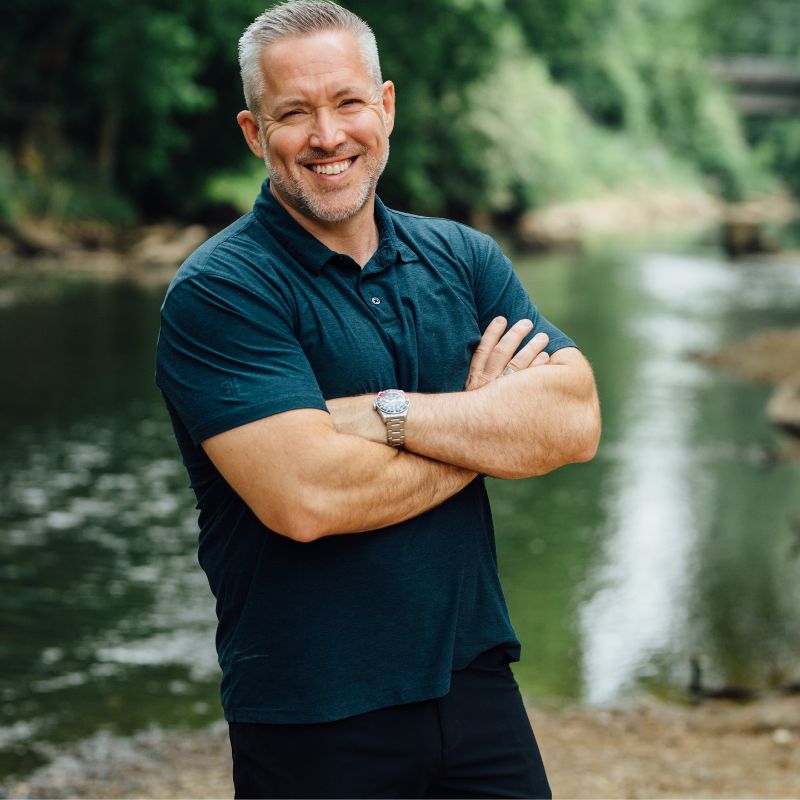
Confessing Jesus as Lord with our mouths is relatively easy, but what we do with our resources shows what we truly believe. If I want to see what you actually believe about eternity, I won’t listen to what your mouth says or how high your hands are raised in worship—I’ll look at how you spend your money.
Imagine walking through Nordstrom (not Nordstrom Rack, the expensive Nordstrom). As you make your way through each department, you collect all sorts of designer clothes, jewelry, and accessories. A friend of yours runs into you, knowing you don’t have money for any of those things, and asks, “What are you doing? You can’t afford this!” To which you say, “I know, I’ll leave it all at the counter before I walk out. It just feels so good to walk around with it.”
Not many of us would do that. Why load yourself up with things you can’t take with you? And yet, many of us approach our wealth on earth like that. Jesus said that, from the perspective of eternity, we can’t take it with us. So when we pretend we can—using our possessions to make a nice, comfortable life for ourselves here—we look just as silly as someone collecting Nordstrom clothes that they know they’ll never buy.
Jesus taught this in a parable recorded in Luke’s gospel. It’s one of the weirdest parables he ever taught, so many of us skip it. But there are two important principles here for us. Here’s the story (from Luke 16): There’s a money manager for a really rich guy who suddenly and unexpectedly is given his two-week notice. So he goes home and, in despair, says to his wife, “What am I going to do? I’ve gotten used to drinking $7 Starbucks cortados every day and sitting in first class on the stagecoach, and there is no way I’m going back to drinking Sheetz Coffee and sitting in economy class.” (I’m embellishing a touch. I can’t say for sure, but I’m pretty sure they didn’t have Sheetz in ancient Israel.)
Well, the money manager then has a brilliant idea: He’s been given his two-week notice, but that leaves him two weeks during which he can still act in his capacity as the rich boss’s money manager. Evidently, his boss apparently forgot to take away his security clearance and his power-of-attorney authorizations when he gave him his notice. So, for two full weeks, he can still negotiate on behalf of his boss.
And he does.
He calls up several of the people who still owe the boss money, and he says to them, “OK ... I see here that you owe my boss $100,000. Well, I tell you what, if you pay $75,000 right now, I’ll give you an official ‘debt-settled’ certificate, and we’ll just call it even.” And they are like, “Are you serious?!” And he says, “Yes. But just remember later who took care of you.” Wink wink.
Well, this guy does this with all of his boss’s debtors. And so after the two weeks are up and he has no more job, he’s got a bunch of grateful people who feel like they owe him a big, huge favor. Meanwhile, the boss has been cheated out of tens of thousands of dollars.
Then Jesus says, incredibly, “The master commended the dishonest manager because he had acted shrewdly” (Luke 16:8). What?
And then, Jesus explains the lesson: “For the people of this world are more shrewd in dealing with their own kind than are the people of the light. I tell you, use worldly wealth to gain friends for yourselves so that when it is gone, you will be welcomed into eternal dwellings” (Luke 16:8–9).
A lot of people find this parable confusing. What in the world is Jesus saying? Why is he praising this money manager whose behavior is morally dubious (at best) or outright fraudulent (at worst)?
I see this parable as one of those Magic Eye pictures. Remember those? You look at it, and it looks like just a bunch of random dots, but everybody’s like, “Can’t you see the Statue of Liberty? Let your eyes un-focus,” and you’re like, “All I see is a bunch of dots!” Well, for some of us, suddenly your eyes cross, and you “un-focus” or whatever, and you can finally see the Statue of Liberty; then, from that point on, whenever you look at the picture, that’s what you’ll always see.
This parable is a bit like that. It’s initially confusing, but once you see the meaning, you’ll never forget it.
Are you ready? Here we go: The rich man represents God, and the manager who just got fired is us. The money we’re managing represents all the resources God has entrusted under our care—our life, our breath, our possessions, everything. The firing notice the manager receives represents our knowledge of our coming death. We’ve all been given that notice: We don’t know exactly how long we’ve got—it could be two weeks, 20 years, or 70 years—but we’re all going to die, and when we do, we lose access to the Master’s “money” (our life, our breath, our resources, everything). All of it goes away. We came into the world with nothing; we left with nothing.
And if you’re smart, Jesus says, like this fired money manager, you’ll use your money now to prepare for your coming future. You can’t take any of your money with you into the future, but you can use that money now in ways that will prepare you for that future.
2 Key Principles of Giving from Jesus' Parable
1. All that we have belongs to God.
The entire premise of Jesus’ parable is that the manager is handling someone else’s money with the knowledge that he will one day return it. When our attitude acknowledges that what we have isn’t really ours, we’re one step closer to a proper understanding of God’s plan for stewardship.
I know, especially as Americans, it’s easy to bristle at that. I earned what I have. I worked hard and became a success on my own. I’m not saying you didn’t work hard. I’ll take your word for it. But just think: where or who did those talents come from? The drive you possess? The very air you breathe? Sure, you might intentionally spend resources to develop yourself, but who provided those resources? Trace it far enough back, and you’ll see that God did. This doesn’t mean our hard work doesn’t matter; it’s just to say that when we trace it back, everything we have belongs to God.
When we live as though everything belongs to God, we also know and believe that the wisest thing we can do with all we have is to leverage it for eternity.

2. The wisest thing we can do with all we have is to leverage it for eternity.
In the parable, what the fired manager did was logical—smart, even—and that’s why Jesus praised him for it. He doesn’t want us acting dishonestly or cheating other people. What he wants us to emulate is this man’s shrewdness and insight. Jesus says, in essence, “I wish my people were as insightful with their lives as this shrewd manager was with his money.”
The ancient pharaohs and kings were often buried with their riches and possessions. The idea was that they would carry their wealth with them into the afterlife. But how did that work out for them? The wealth left in their tombs just gathered dust, eventually becoming the prize for tomb raiders.
I’m not sure any of us plan to be buried with our bank statements, but if we don’t ever think about eternity, we’re effectively doing the same thing. If we know death is inevitable, and there is a time when all we’ve enjoyed and built will come to an end, isn’t the wise thing to do to leverage it for eternity so that our efforts point to Jesus long after we’re gone?
Randy Alcorn, in The Treasure Principle, writes, “You can’t take [money] with you, but you can send it on ahead.” What we do with our money now matters later. Luke 16:11–12 tells us that if we fail to be faithful with fleeting things like dollar bills, how can we expect God to entrust us with kingdom responsibility?
Yes, it’s true that love and compassion are also motivators for giving, but this gets at the core of what’s necessary to live the Christian life—faith. Do we believe in Jesus and eternity so much so that it affects what we do with our money and possessions now?
Many of us nod our heads when it comes to the reality of eternity, but what do our actions say?
Photo Credit: SWN Design

Pastor J.D. completed his Ph.D. in Theology at Southeastern Baptist Theological Seminary. He serves as a member of the Board of Directors of Chick-fil-A, serves as a Council member for The Gospel Coalition, and recently served as the 62nd president of the Southern Baptist Convention. Pastor J.D. and his wife Veronica are raising four awesome kids.
"Editor's Note: Pastor JD Greear's "Ask the Pastor" column regularly appears at Christianity.com, providing biblical, relatable, and reliable answers to your everyday questions about faith and life. Email him your questions at [email protected]."

.jpg)


.jpg)